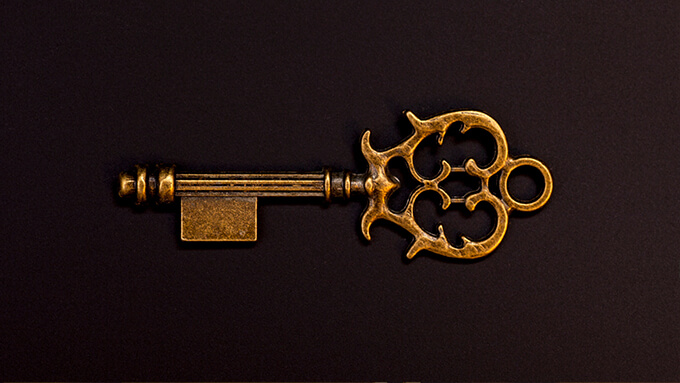The Start of a New Era in Turkey: Presidential System of Government - II
In our previous Newsletter article, the Law on the Amendment to the Constitution of the Republic of Turkey numbered 6771 (“Constitutional Amendment”) and the new system of government initiated by the Constitutional Amendment were examined. In this Article, the legislative amendments aiming to adapt to the new system, the organizational structure of the Presidency, and its affiliated institutions, shall be examined.
Following the system change on 09.07.2018, and in the month of July, alone, 434 laws were amended and 17 laws were abrogated through 29 decrees. In addition, 14 laws and a decree were amended, and one law was abrogated through an omnibus bill. As well, 14 decrees were published, 64 regulations were amended, while 7 regulations were abrogated, and 38 new regulations have entered into force.
Furthermore, 17 decrees, 184 decisions and 10 circulars were published by the President up until 20.09.2018. Generally speaking, decrees have restructured the new system of government, and executive assignments have been made through decisions. The most comprehensive legislation of this process was Decree numbered 703, and Presidential Decree numbered 1, with respect to the Presidential organization.
Decree numbered 703
Through Decree numbered 703, the central office of the Prime Minister has been closed. In the legislation, references made to the Prime Ministry shall be deemed to have been made to the Presidency, or the relevant ministries and organizations, according to their duties and fields of activity. The Presidency shall be the party in the case of judicial, administrative, arbitration, and execution proceedings that have been initiated, or will be initiated, with respect to the acts and procedures of the Prime Ministry. In this manner, the Presidency shall give authority to the relevant administrative legal units to represent and pursue those lawsuits in which the Presidency is a party, and the lawsuits that have been initiated, or will be initiated, against the Presidency.
In addition, some ministries have been merged, and some ministries’ names have been amended. The number of ministries in the field of economics has been reduced from six to three, and the total ministry number has been reduced to sixteen. The remarkable amendments, in this context, are: The merger of the Ministry of Family and Social Policies and Ministry of Labor and Social Security, now under the name of the Ministry of Labor, Social Services and Family; The merger of the Ministry of Commerce and the Ministry of Customs and Trade, now under the name of the Ministry of Economy; The merger of the Ministry of Foreign Affairs and the Ministry of European Union, now under the name of the Ministry of Foreign Affairs; The merger of the Undersecretariat of Treasury under the Deputy Prime Minister and Ministry of Finance, now under the name of the Ministry of Treasury and Finance.
Another remarkable amendment is that the Ministers shall be answerable only to ‘the President’ regarding the effective, economic, and efficient usage of public resources, together with the legal and financial issues, while they were previously answerable to the ‘the Prime Minister and the Grand National Assembly of Turkey’ with respect to the same issues.
The Law of the State Supervisory Board was amended: The Law on the Duties and Powers of the Chief of the General Staff of the Armies and the Law on the Establishment and Duties of the Supreme Military Council were repealed. These issues shall be regulated by Presidential decrees, instead of through laws.
Various qualifications, such as graduation from certain undergraduate programs, working in certain institutions, and a membership offer sought for the appointment to senior public institutions, such as the Competition Board, Energy Market Regulatory Authority, Public Oversight, Accounting and Auditing Standards Board, and the Public Procurement Authority, have now been abolished.
Presidential Decrees
Presidential Decree numbered 1 regarding the Presidential Organization
The new Presidential Organization was established by Presidential Decree numbered 1 regarding the Presidential Organization.
The Presidential Organization is comprised of the Presidency, Directorate for Administrative Affairs, Vice Presidents, Presidential Policy Boards, Ministries, Presidential Offices, and Affiliated Institutions and Organizations.
The Chief of Administrative Affairs, the most senior civil servant, is the chief of the Directorate of Administrative Affairs of the Presidency. The Directorate of Administrative Affairs is comprised of the General Directorates of the Law and Legislation, Personnel and Principles, Security Affairs, Support and Financial Services.
The other members of the organization are the Vice-Presidents. The duties of the Vice-Presidents are not enumerated in the Decree; these shall be determined by the President.
The Presidential Boards are the Boards of Science, Technology and Innovation Policies, Education and Training Policies, Economic Policies, Foreign Policies, Legal Policies, Culture and Art Policies, Health and Food Policies, Social Policies, and Local Government Policies.
Institutions and organizations under the Presidency are as follows:
- Directorate of State Archives
- State Supervisory Board
- Presidency of Religious Affairs
- Communication Department
- Secretary General of the National Security Council
- Presidency of National Intelligence Organization
- Presidency of National Palaces Administration
- Directorate of Defense Industry
- Directorate of Strategy and Budget
- Turkish Wealth Fund
The Turkish General Staff of the Armies in the first list, and formed by this Presidential Decree, was affiliated with the Ministry of National Defense by Presidential Decree numbered 4.
In addition, together with the Presidential Decree, the Digital Transformation Office, the Financial Office, the Human Resources Office and the Investment Office, that own special budgets, with seperate public legal entities, and administrative and financial autonomies affiliated with the Presidency, were established to fulfill the duties assigned to them.
Presidential Decree numbered 3 regarding the Appointment Procedures for Senior Public Administrators and Public Institutions and Organizations
Presidential Decree numbered 3 divides senior official positions into two tables. Appointments in positions specified in Table I attached to Presidential Decree, such as Head of Religious Affairs, National Intelligence Organization, Defense Industry, Social Security Institution, Deputy Ministers and Governors, are made at the discretion of the President. Appointments in positions specified in Table II, such as Deputy General Managers, Heads of Revenue Administration Departments, Members of the Public Economic Enterprise Board of Directors, Head of Provincial Treasurer, Provincial Police Chiefs, Provincial Muftis, Deputy Governors and District Governors, on the other hand, are made through the approval of the President upon the proposal of the relevant Ministry.
Presidency Circulars
As of 20.09.2018, 10 circulars were issued by the President. In this context, Presidency Circular numbered 2018/1 regarding the Affiliated, Associated and Related Institutions and Organizations to the Ministries is of great importance.
Within the scope of this circular, the Savings Deposit Insurance Fund is affiliated with the Presidency; Personal Data Protection Authority, Human Rights and Gender Equality Authority of Turkey are affiliated with the Ministry of Justice; Türkiye Emlak Bankası A.Ş. is affiliate with the Ministry of Environment and Urban Planning; Banking Regulation and Supervision Agency, Public Oversight, Accounting and Auditing Standards Agency, Capital Markets Board, the Central Finance and Contracts Unit, General Directorate of Central Bank of the Republic of Turkey, Türkiye Cumhuriyeti Ziraat Bankası A.Ş., Türkiye Halk Bankası A.Ş., Türkiye Vakıflar Bankası A.Ş. and Türkiye Kalkınma Bankası A.Ş., are affiliated with the Ministry of Treasury and Finance.
Through the Presidency Circular numbered 2018/3, crucial powers of the Privatization High Council, High Planning Council, Money-Credit and Coordination Board were transferred to the President.
Pursuant to Presidency Circular numbered 2018/7, prior to initiating an examination process for personnel to be undertaken through a special examination, the permission of the President shall be obtained.
Conclusion
Although the legislation determining the general outline of the new system of government has swiftly entered into force, it is not yet possible to say whether or not the new system has completed its formation.
All rights of this article are reserved. This article may not be used, reproduced, copied, published, distributed, or otherwise disseminated without quotation or Erdem & Erdem Law Firm's written consent. Any content created without citing the resource or Erdem & Erdem Law Firm’s written consent is regularly tracked, and legal action will be taken in case of violation.
Other Contents

The Resolution of the President dated 07.11.2025 and numbered 10538 on the Ratification of the Agreement between the Government of the Republic of Türkiye and the Government of the Russian Federation on International Road Transport was published in the Official Gazette dated 08.11.2025 and…

The Grant Agreement signed with the International Bank for Reconstruction and Development regarding the Türkiye Industrial Technological Transformation Project was published in the Official Gazette dated 30.09.2025 and numbered 33033...

The Resolution of the President dated 28.08.2025 and numbered 10310 on the Approval of the attached Notes Verbales exchanged between the Republic of Türkiye and the United Nations Secretariat regarding the application, for a period of one year, of the provisions of the Revised Standard Agreement on...

The Resolution of the President dated 20.05.2025 and numbered 9836 on the Approval of the Memorandum of Understanding on Cooperation in the Field of Forestry between the Government of the Republic of Türkiye and the Government of the Kingdom of Cambodia was published in the Official Gazette dated...

The Resolution of the President dated 22.04.2025 and numbered 9755 on the Approval of the Agreement on Trade and Economic Cooperation Between the Government of the Republic of Türkiye and the Government of the Republic of Maldives was published in the Official Gazette dated 23.04.2025 and numbered...

The Resolution of the President dated 21.03.2025 and numbered 9686 on the Approval of the Implementing Agreement for the IPA Bulgaria-Türkiye Program (Interreg VI-A) was published in the Official Gazette dated 22.03.2025 and numbered 32849...

Law No. 7544 on the Approval of the Ratification of the Cooperation Agreement between the Government of the Republic of Türkiye and the Government of the Republic of Azerbaijan in the Field of Natural Gas entered into force through publication in the Official Gazette dated 05.03.2025 and numbered 32832...

The Resolution of the President dated 31.01.2025 and numbered 9486 on the Approval of the Agreement between the Government of the Republic of Türkiye and the Cabinet of Ministers of the Kyrgyz Republic on the Establishment and Functioning of Cultural Centers was published in the Official Gazette dated...

The Resolution of the President dated 21.12.2024 and numbered 9272 on the Approval of the Annexed Letters dated 25/10/2024 and 12/11/2024 Exchanged between the Government of the Republic of Türkiye and the European Commission on the Amendment to the Financing Agreement for IPARD III Assistance...

The Resolution of the President dated 26.11.2024 and numbered 9144 on the Approval of the Implementing Protocol on Cooperation between the Government of the Republic of Türkiye and the Government of the Turkish Republic of Northern Cyprus on Product Safety Inspection of Products Imported...

The Resolution of the President dated 01.11.2024 and numbered 9076 on the Approval of the Host Country Agreement between the Government of the Republic of Türkiye and the Turkish Investment Fund, was published in the Official Gazette No. 32710 on 02.11.2024...

The Resolution of the President dated 03.10.2024 and numbered 8993 on the Approval of the Board of Governors’ Resolutions No. 259 and 260 on the Amendment to the Annexed Agreement on the Establishment of the European Bank for Reconstruction and Development, Approved by Law No. 7526 dated...

The Resolution of the President dated 16.07.2024 and numbered 8729 on the Approval of the Economic and Financial Cooperation Agreement between the Government of the Republic of Türkiye and the Government of the Turkish Republic of Northern Cyprus was published in the Official Gazette dated...

The Resolution of the President dated 24.05.2024 and numbered 8511 on the Ratification of the Additional Protocol No. 1 to the Free Trade Agreement between the Government of the Republic of Türkiye and the Government of Malaysia was published in the Official Gazette dated 24.05.2024 and numbered 32555...

In administrative cases concerning monetary matters, the right to appeal to ordinary legal remedies against the decisions of administrative and tax courts is subject to the condition that the dispute exceeds a certain monetary limit in the Turkish legal system...

The Resolution of the President dated 26.04.2024 and numbered 8407 on the Approval of the Annexed Financing Agreement for the NEXT Mediterranean Basin (NEXT MED) Cooperation Program (Interreg VI-B) signed on behalf of the Republic of Türkiye in Ankara on 13 October 2023 was published in the Official...

The Resolution of the President dated 04.04.2024 and numbered 8298 on the Approval of the Agreement on Commercial and Economic Cooperation between the Government of the Republic of Türkiye, the Government of the Republic of Azerbaijan and the Government of Turkmenistan was published in the Official...

The Law numbered 7497 on the Approval of the Ratification of the Protocol Amending the “Preferential Trade Agreement” between the Government of the Republic of Türkiye and the Government of the Republic of Azerbaijan entered into force through publication in the Official Gazette dated 01.03.2024 and...


The Resolution of the President dated 23.01.2024 and numbered 8123 on the Approval of the Amendment Protocol signed by the Exchange of Letters dated 6/12/2023 and 20/12/2023 between the Government of the Republic of Türkiye and the European Commission on the Amendment to the Financing Agreement...

The Resolution of the President dated 27.12.2023 and numbered 7996 on the Approval of the Annexed Financing Agreement for the Annual Action Programme for Türkiye for the Year 2022, Signed on behalf of the Republic of Türkiye on 30 November 2023, together with the accompanying Notes was...

The Law numbered 7478 on the Approval of the Ratification of the Air Services Agreement between the Government of the Republic of Türkiye and the Government of the Republic of Maldives entered into force through publication in the Official Gazette dated 29.11.2023 and numbered 32384...

The Resolution of the President dated 24.10.2023 and numbered 7731 on the Approval of the Protocol on Cooperation in the Field of Social Assistance and Social Services between the Government of the Republic of Türkiye and the Government of the Turkish Republic of Northern Cyprus was published in the...

The Law on the Approval of the Ratification of the Intergovernmental Agreement on Dry Ports numbered 7459 was published in the Official Gazette dated 17.10.2023 and numbered 32342...

The Resolution of the President dated 14.09.2023 and numbered 7611 on the Approval of the Agreement signed between the Government of the Republic of Turkey and the Government of Hungary on 06/04/2023 on Cooperation in the Field of Sports was published in the Official Gazette dated 15.09.2023 and...

The concept of estate, which can be considered as the foundation of our inheritance law, refers to all the property, rights, and debts belonging to an individual after their death. Throughout history, humans have been buried with their cherished belongings based on religious beliefs, but over time, it has been observed...

The Resolution of the President dated 21.07.2023 and numbered 7393 on the Approval of the Memorandum of Understanding between the Government of the Republic of Türkiye and the Government of the People’s Democratic Republic of Algeria on Cooperation in the Field of Mining was published in the Official...

The Grant Agreement signed on 06.04.2023 between the Ministry of Treasury and Finance of Republic of Türkiye, Development and Investment Bank of Turkey (TKYB) and German Development Bank (KfW) was published in the Official Gazette dated 04.07.2023 and numbered 32238...

Inheritance contracts are contracts involving a testamentary disposition concluded by the legator, with her inheritor or a third party. A testamentary disposition is a legal transaction that includes the orders of the legator that she wishes to be carried out after her death. Testamentary disposition term is used in two...

The Resolution of the President dated 06.06.2023 and numbered 7302 on the Ratification of the Economic and Financial Cooperation Agreement between the Republic of Türkiye and the Turkish Republic of Northern Cyprus for 2023 was published in the Official Gazette dated 07.06.2023 and numbered 32214...

This study examines the decision ("Decision") of the Turkish Constitutional Court ("CC") dated 22.02.2023, published in the Official Gazette on April 28, 2023, which abolished the first sentence of Article 187 of the Turkish Civil Code numbered 4721 ("TCC"), which obliges a woman to take her husband's surname upon...

The Resolution on the Approval of the Annexed Amendment Letter Regarding the Separate Agreement on the Financing Agreement between the Ministry of National Education of the Republic of Turkey and the German Development Bank (KfW) on the Clean Energy and Energy Efficiency Measures Project...

The Resolution of the President dated 01.04.2023 and numbered 7025 on the Approval of the Protocol on the Accession of the Republic of Finland to the North Atlantic Treaty was published in the Official Gazette dated 02.04.2023 and numbered 32151...

The Resolution of the President dated 08.03.2023 and numbered 6913 on the Ratification of the Agreement between the Republic of Turkey and the European Union on the Participation of the Republic of Turkey in the Union Program on Cooperation in the Customs Area, ‘Customs’, effective from 1 January 2021...

The Resolution of the President dated 25.01.2023 and numbered 6728 on the Application of the Exemption in the Fourth Paragraph of the Provisional Article 14 of the Corporate Tax Law No. 5520 to the Foreign Currencies in the Balance Sheets of the Corporations as of 31.12.2022 was published in the Official...

The Resolution on the Approval of the Protocol between the Government of the Republic of Turkey and the Government of the Turkish Republic of Northern Cyprus on the Deployment of Energy Transmission Lines of Geçitkale Airport (Resolution No: 6647) entered into force through publication in the...

The Resolution of the President dated 23.11.2022 and numbered 6416 on the Approval of the Economic and Financial Cooperation Agreement - Additional Agreement - signed between the Government of the Republic of Turkey and the Government of the Turkish Republic of Northern Cyprus on...

The Resolution of the President dated 19.10.2022 and numbered 6238 on the Approval of the Memorandum of Understanding Between the Government of the Republic of Turkiye and the Government of the Federal Republic of Nigeria on Cooperation in the Field of Energy was published in the Official Gazette...

The Resolution of the President dated 26.09.2022 and numbered 6090 on the Approval of the Annexed Amendment Protocol signed by the Exchange of Letters dated 12.08.2022 and 31.08.2022 between the Government of the Republic of Turkey and the European Commission on the Amendment to...

The Resolution of the President dated 15.09.2022 and numbered 6080 on the Approval of the Memorandum of Understanding About Implementation of the Multilateral Tax Program Between the Government of the Republic of Turkey and the Organization for Economic Cooperation and Development at...

Since social media has turned into a modern mass communication tool, the concepts of advertising and marketing have been brought to a new dimension. Influencers, who promote various products and services by "influencing" their audience through social media, are driving the next generation of...

The Resolution of the President dated 20.07.2022 and numbered 5801 on the Determination of the Default Interest Rate under the First Paragraph of Article 51 of the Law numbered 6183 on the Collection Procedure of Public Receivables as 2.5% to be Applied Separately for Each Month, was published...

Decision dated 27.06.2022 and numbered 5751 on the Ratification of the Fund Grant Agreement signed between Republic of Turkey Ministry of Labor and Social Security and International Bank for Reconstruction and Development, on 05.05.2022...

The Resolution of the President dated 23.05.2022 and numbered 5596 on the Ratification of the Economic and Financial Cooperation Agreement between the Government of the Republic of Turkey and the Government of the Turkish Republic of Northern Cyprus was published in the Official Gazette dated...

The Resolution of the President dated 23.04.2022 and numbered 5520 on the Approval of the Agreement between the Government of the Republic of Turkey and the Government of the Republic of Cote D’Ivoire Concerning the Reciprocal Promotion and Protection of Investments...


In a decision dated 29.09.2021 with application number 2018/357 (“Decision”), the Constitutional Court decided by a large majority that the applicant's right to property was violated due to the fact that the immovables expropriated for the purpose of mass housing construction...












































































Pursuant to Art. 101 of the Turkish Civil Code (“CC”) No. 4721, foundations are an ensemble of assets that have legal personality, which comprises of sufficient assets and rights that are allocated by real and legal persons for a determined and perpetual objective. Foundations are legal persons that have “ideal...

